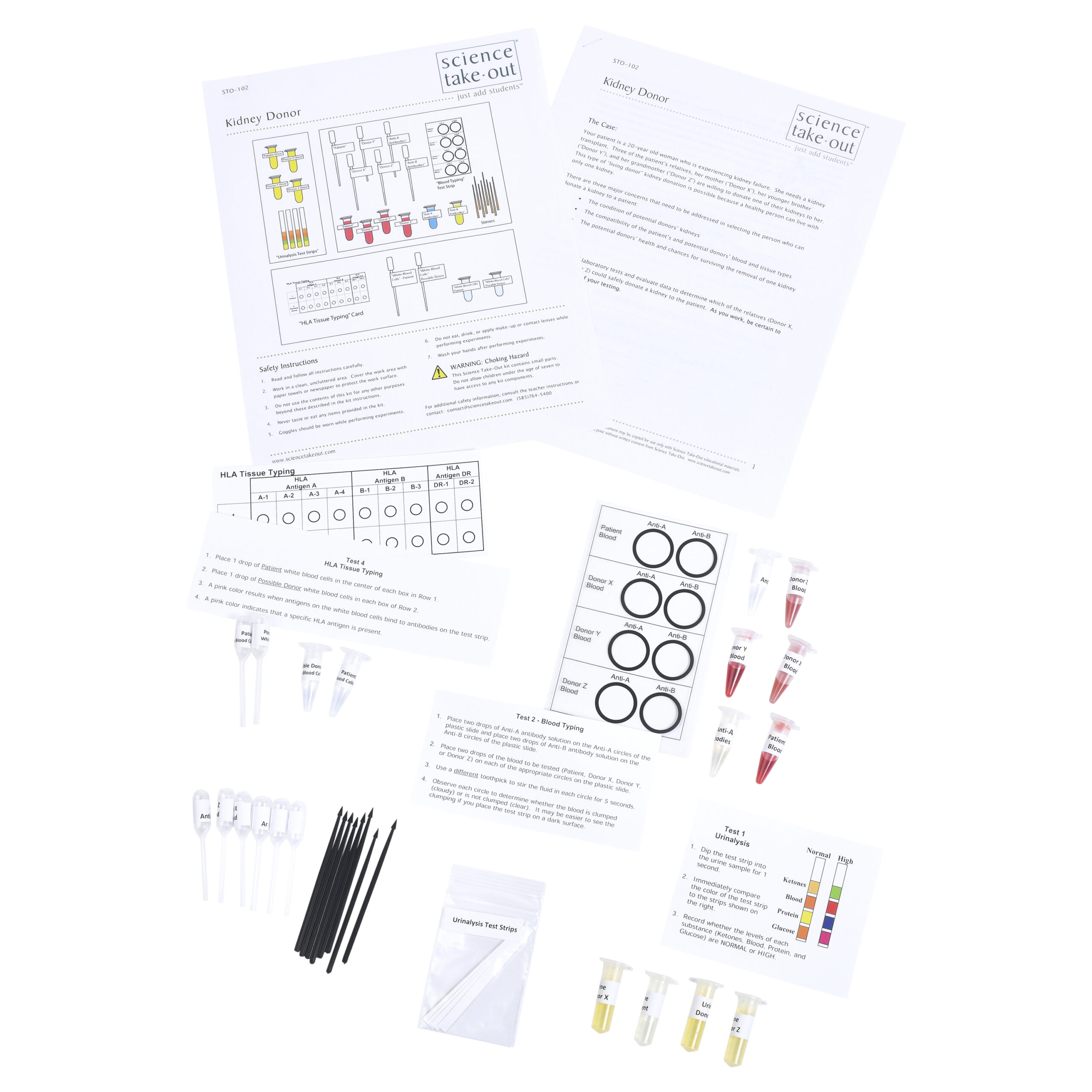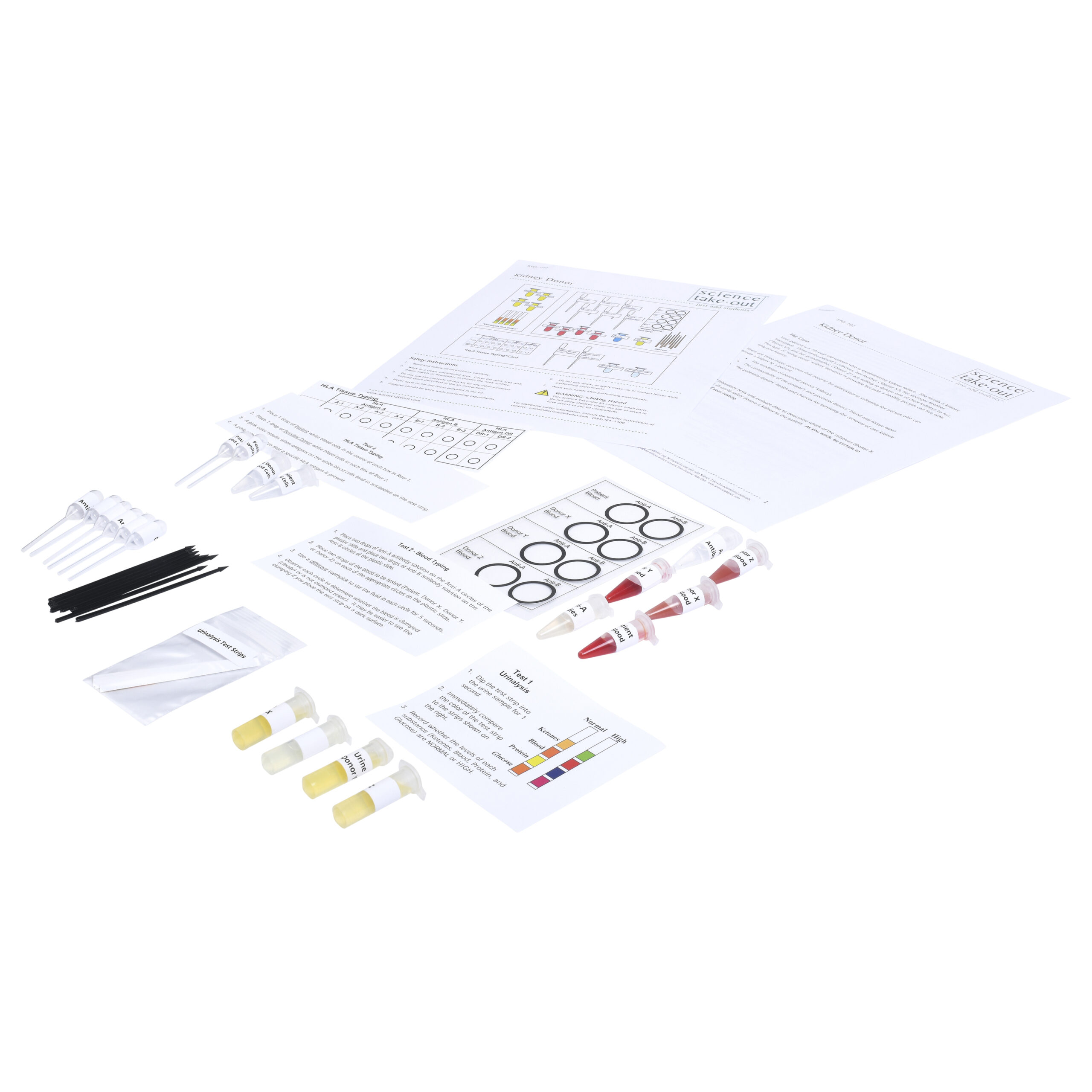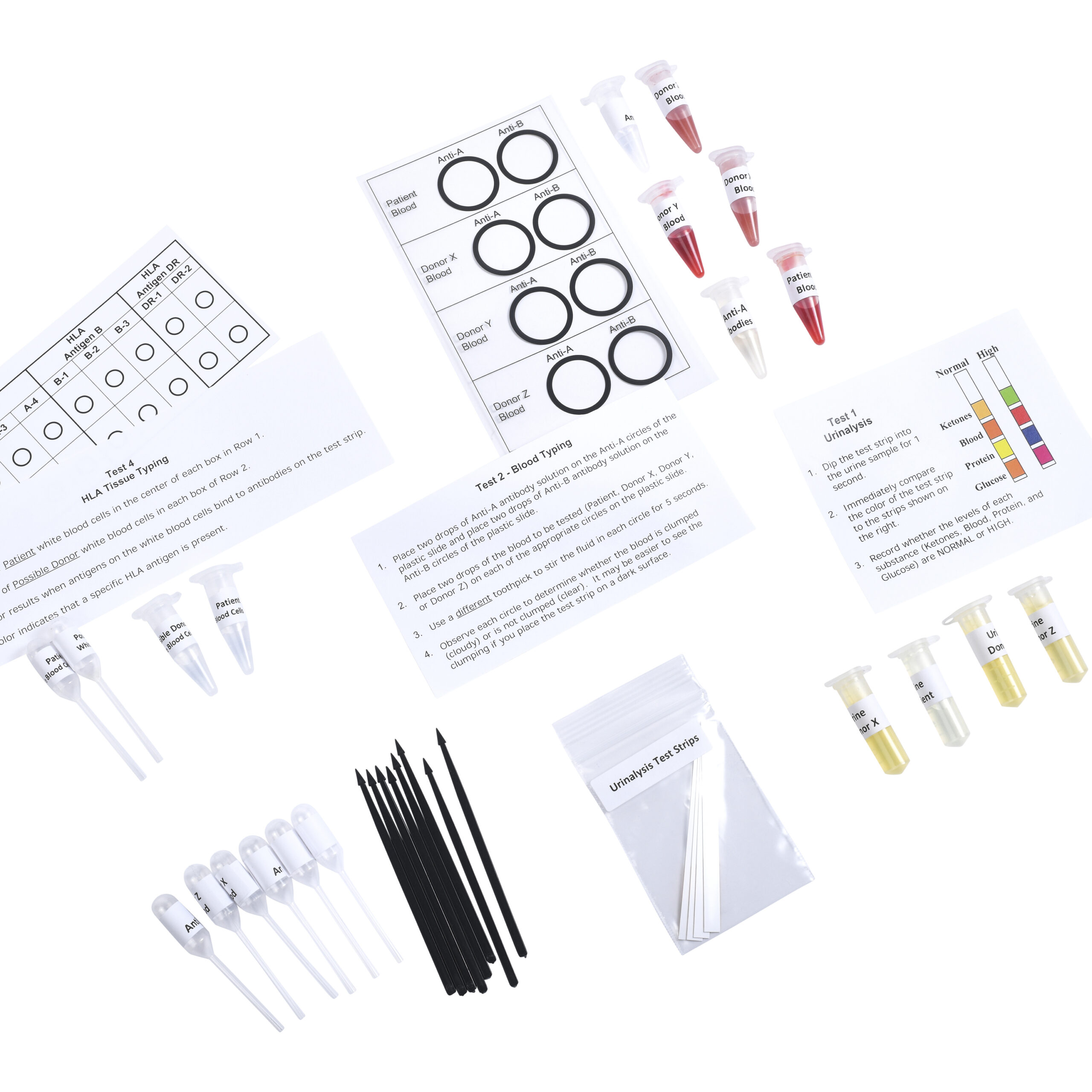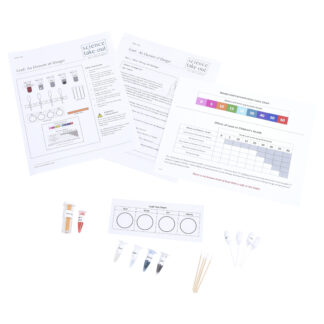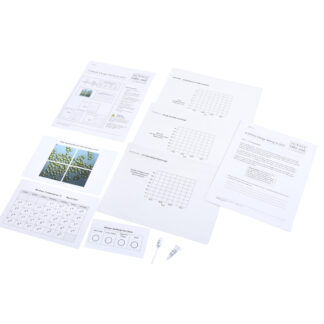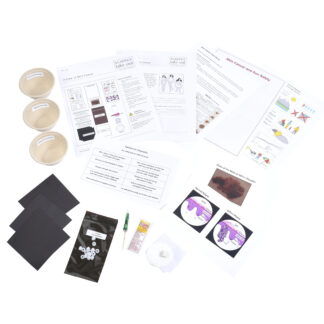Kidney Donor
$23.95 – $163.95
Which person would make the best kidney donor?
Which family member can safely donate a kidney to a patient who needs a kidney transplant? Perform laboratory tests and analyze the results to determine who should donate a kidney to the patient.
- Conduct simulations of the following laboratory tests: urinalysis, blood typing, HLA tissue typing
- Analyze donor survival data
Kit Includes
- Student instructions
- Simulated “urine” samples – Patient, Donor X, Donor Y, Donor Z
- 4 simulated urinalysis test strips
- Simulated “blood” samples – Patient, Donor X, Donor Y, Donor Z
- Simulated “Anti-A antibodies”
- Simulated “Anti-B antibodies”
- 8 labeled droppers
- 8 stirrers
- Blood typing test strip
- Simulated “white blood cells” – Patient, Possible Donor
- Simulated HLA Tissue Typing Card
Quantity Discounts
Kits:
- 1 – 9 kits: $23.95 each
- 10 – 24 kits: $22.75 each
- 25+ kits: $21.56 each
Unassembled:
- 1 – 9 packs: $163.95 each
- 10+ packs: $155.75 each
Refills:
- 1 – 9 packs: $85.95 each
- 10+ packs: $81.65 each
Correlation to Next Generation Science Standards (NGSS) Shop by NGSS »
Performance Expectations:
MS-LS1-3. Use argument supported by evidence for how the body is a system of interacting subsystems composed of groups of cells.
Science & Engineering Practices
Analyzing and Interpreting Data - Analyze data to identify design features or characteristics of the components of a proposed process or system to optimize it relative to criteria for success.
Disciplinary Core Ideas
LS1.A: Structure and Function - All living things are made up of cells. In organisms, cells work together to form tissues and organs that are specialized for particular body functions.
Crosscutting Concepts
Systems and System Models - Systems may interact with other systems; they
may have sub-systems and be a part of larger complex systems.
